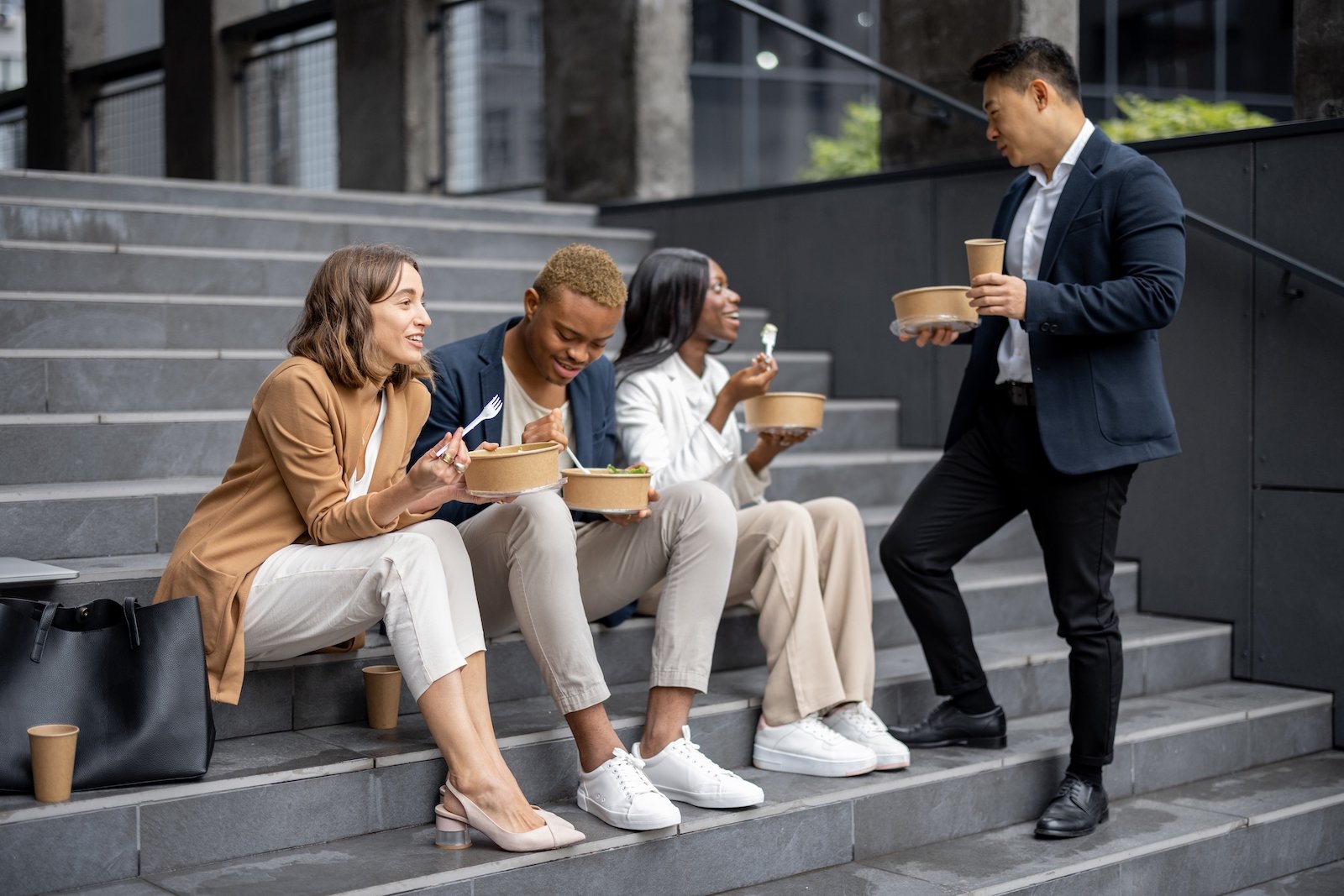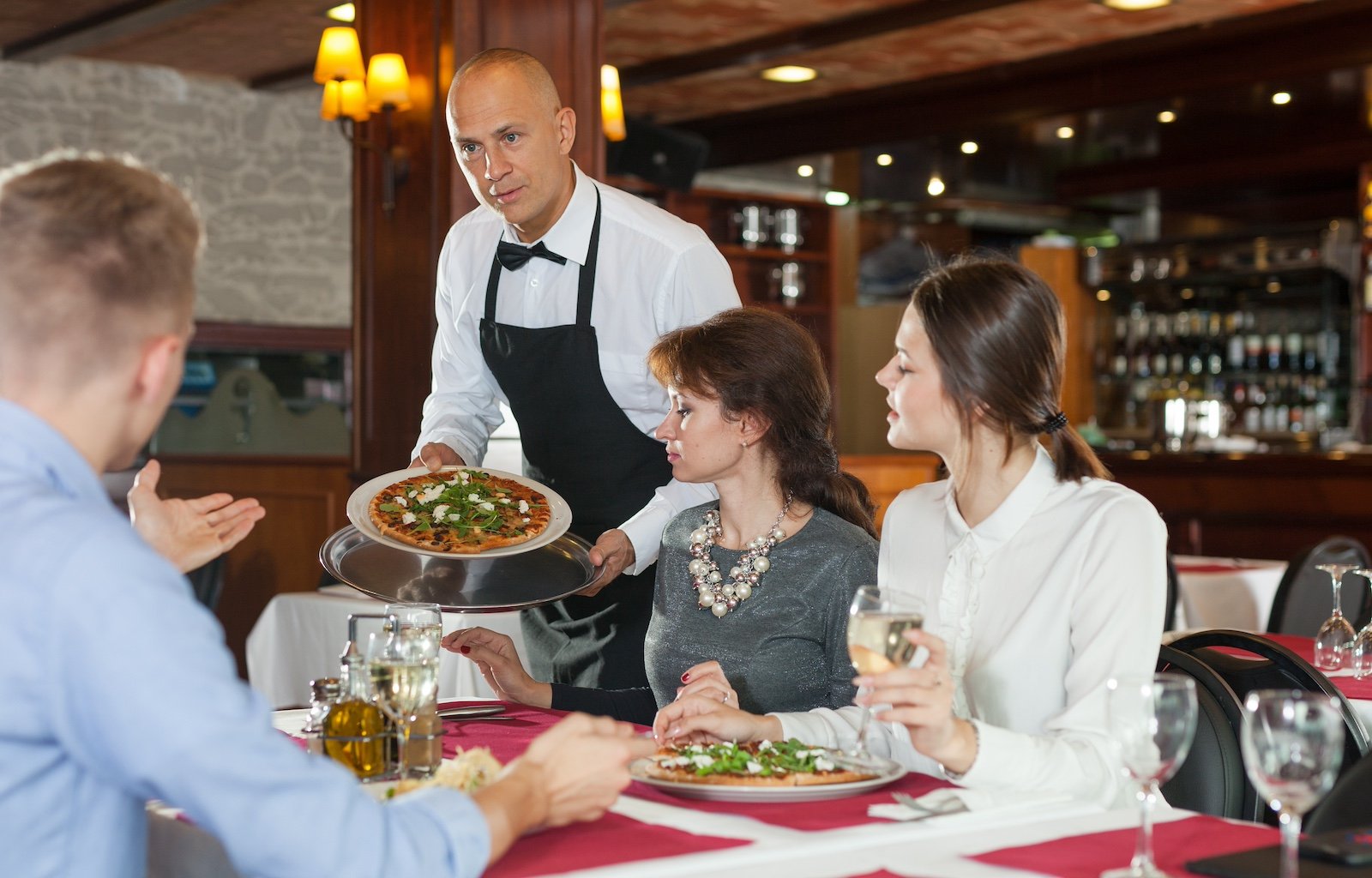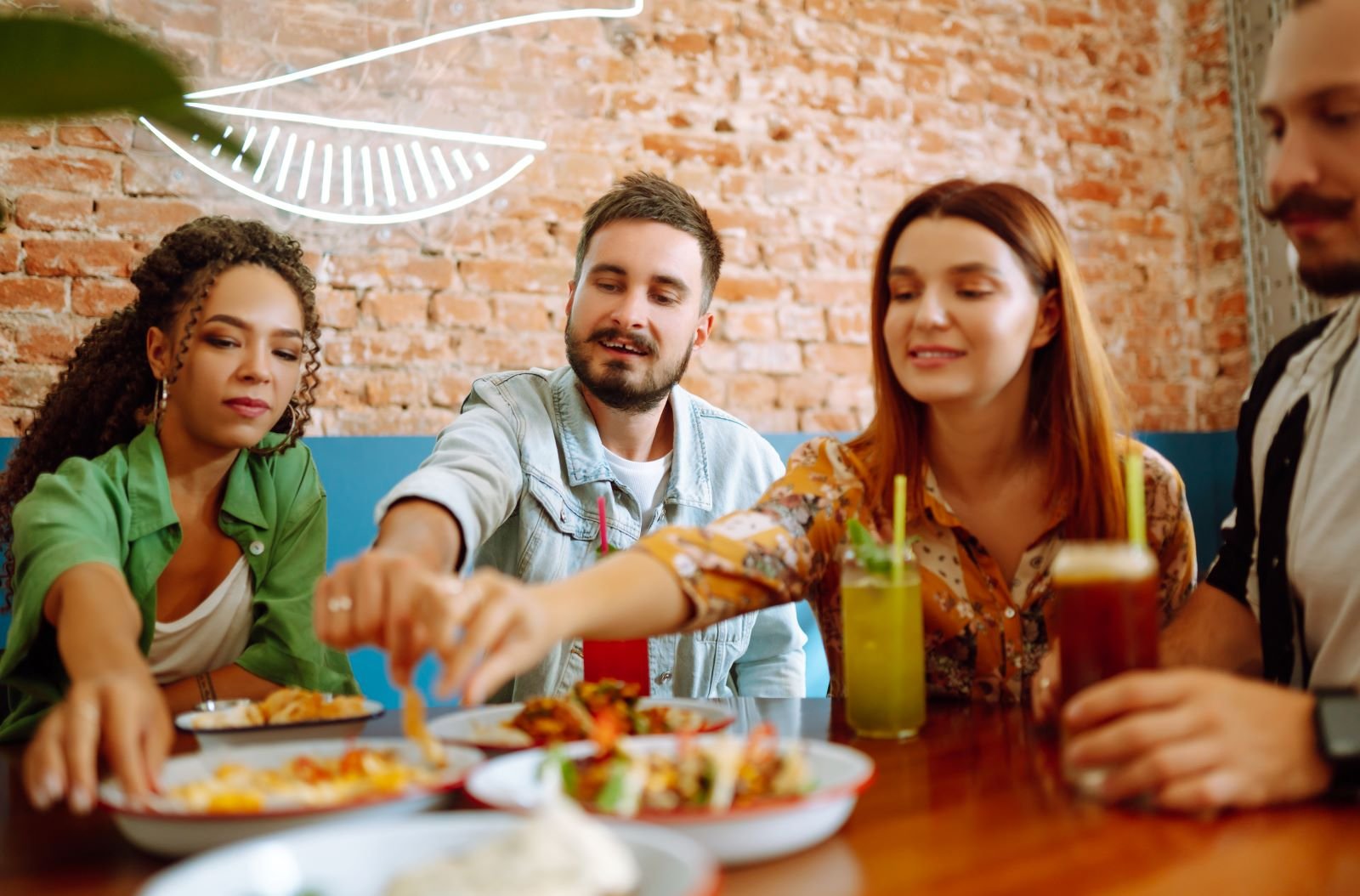Dining out with a large group can be a fun experience. However, certain etiquette guidelines must be adhered to to ensure a pleasant dining experience for everyone involved. Overlooking this could lead to awkwardness, hurt feelings, or even ruined relationships.
In this blog, we have mentioned some common etiquette mistakes people make when dining in large groups and offered guidance on avoiding them.
Diving In Before Others

You should wait for everyone to get their food before digging in. While it may be tempting to start when your meal arrives, waiting for others to be served is essential as a gesture of consideration. Doing so ensures that everyone enjoys the meal together and keeps everyone from feeling rushed or excluded. Additionally, it allows for conversation and connection before the focus shifts to the food.
Using Your Phone

A 2023 survey by The Takeout showed that 60% of millennials and 81% of Gen Zs stare at their phone screen while eating. The use of mobile phones at the dinner table is generally frowned upon. Constant checking of notifications or engaging in lengthy conversations can disrupt the flow of conversation and create a sense of disengagement with those present. Prioritizing face-to-face interaction and fully engaging in the dining experience is essential. If a phone call is absolutely necessary, excuse yourself from the table to take the call in a private area.
Speaking with Your Mouth Full

Speaking with food in your mouth is unpleasant for others and can also be a choking hazard. Chewing your food thoroughly and swallowing it before engaging in conversation is crucial. Taking the time to finish chewing and swallowing demonstrates good manners and respect for those around you. It also lets you articulate your thoughts clearly and avoid embarrassing moments.
Disregarding Dietary Restrictions

One common etiquette misstep is failing to consider the dietary restrictions of fellow diners when ordering food. Whether it be vegetarian, vegan, gluten-free, or allergies, disregarding these preferences can make individuals feel excluded and uncomfortable. To ensure everyone enjoys the meal, discussing dietary needs beforehand or offering to order separately for those with specific requirements is essential. This demonstrates consideration and inclusivity, creating a more pleasant dining experience.
Financial Insensitivity

Ordering extravagant dishes without considering the financial comfort level of the group can be a significant etiquette faux pas. While it is essential to enjoy oneself, it is equally important to be mindful of others’ budgets. According to Gallup News, 12% of Americans fall under the lower class category, making $30,000 or less annually. Hence, for them, ordering expensive food at a restaurant might not be very accessible.
To avoid misunderstandings or discomfort, discuss a general price range for the meal beforehand or suggest sharing costs upfront. This approach demonstrates respect for others’ financial circumstances and fosters a more harmonious dining experience.
Ignoring the Host

The host plays a pivotal role in orchestrating a memorable dining experience, and their efforts deserve recognition. Failing to acknowledge the host’s hard work can come across as indifferent or ungrateful. Engage with the host by showing appreciation for their hospitality and actively participating in conversations they initiate. By being mindful of their efforts, you contribute to a warm and welcoming atmosphere that enhances the overall dining experience for everyone involved.
Excessive Criticism of Food

Offering constructive criticism about a meal can be helpful, but excessive negativity can be hurtful to the host or chef. Expressing gratitude for the effort to prepare the meal is essential, even if it does not meet one’s personal preferences. If a dish is truly unpalatable, it is best to politely decline additional servings rather than providing a detailed critique. Focus on the meal’s positive aspects and avoid comparing it to other restaurants or cuisines.
Talking Loudly

Engaging in loud conversations during a shared meal can be disruptive and inconsiderate of others. It creates a noisy environment that impacts everyone’s the dining experience. Maintaining a moderate volume level allows for easy conversation without disturbing those nearby. It is essential to be mindful of the overall atmosphere and contribute to a pleasant dining experience.
Disagreements Over Payment

Disputes over bill payment can quickly escalate and create tension among diners. To avoid awkwardness, it is advisable to establish payment arrangements beforehand, whether splitting the bill equally, designating a specific payer, or using other agreed-upon methods. If a disagreement arises, it is crucial to address the issue calmly and respectfully, finding a compromise that satisfies everyone involved.
Dominating the Conversation

While sharing experiences and opinions during a meal is natural, monopolizing the conversation can be off-putting. It is important to encourage participation from all group members and allow others to share their thoughts and perspectives. Active listening and reciprocal dialogue create a more inclusive and enjoyable dining experience. By giving others an opportunity to speak, one demonstrates respect and consideration for their contributions.
Improper Utensil Usage

The correct use of utensils is a fundamental aspect of dining etiquette. Improper utensil usage can create a sense of awkwardness and discomfort. To avoid errors, observe the host or other experienced diners for guidance. It is always better to err on caution and ask for clarification if unsure. Proper utensil usage demonstrates respect for the dining experience and contributes to a polished and refined demeanor.
Forgetting To Share

While it is natural to enjoy delicious food, taking huge portions or repeatedly going back for seconds without considering others can be seen as greedy and inconsiderate. It is essential to be mindful of the quantity of food on one’s plate and to ensure that there is enough for everyone to enjoy. By taking smaller portions initially and offering to share dishes, one can demonstrate consideration for others and contribute to a more harmonious dining experience.
Ignoring the Waitstaff’s Role

In a large group dining setting, the waitstaff plays a crucial role in ensuring the meal goes smoothly. Overlooking their efforts or treating them dismissively can create a negative dining experience for everyone involved. It’s important to acknowledge their service by being polite, attentive, and respectful. Simple gestures like saying “please” and “thank you,” addressing their questions promptly, and being considerate of their time can go a long way in fostering a positive environment. Additionally, ensuring the group contributes fairly to the tip(around 15-20% of the bill amount) shows collective appreciation for the staff’s hard work
Personal Grooming On Table

Engaging in personal grooming activities at the dining table is highly inappropriate. Actions such as applying makeup and fixing hair are considered impolite and disruptive to the shared dining experience. Attending to personal grooming before sitting down at the table is crucial to ensure a comfortable and pleasant atmosphere for all.
Reaching Across Others

Reaching over fellow diners to retrieve items is a common etiquette misstep. This behavior can be intrusive and create a sense of discomfort. To avoid this, politely asking someone to pass the desired item is advisable. This demonstrates consideration for others and maintains a harmonious dining environment.


